
Thank you, Dr. Troup. He's my brother from a different mother — we enjoy many similar things, especially our love for the church and the institutions that prepare men and women for Christ’s service. I'm delighted to be home here at Geneva.
Not only do we share many individuals who have walked these halls and now serve together, we have a same goal and mission together of serving the church well and lifting up the name of Christ Jesus on high.
Congratulations to the Class of 2025! As well as to the distinguished guests who are here, as well as the faculty and board members. You’ve done something right. As a Californian coming here, I can’t believe the weather. The greens! I’ve fallen in love. Here we come to celebrate together on this glorious day as the Lord brings us together to remember His faithfulness to us.
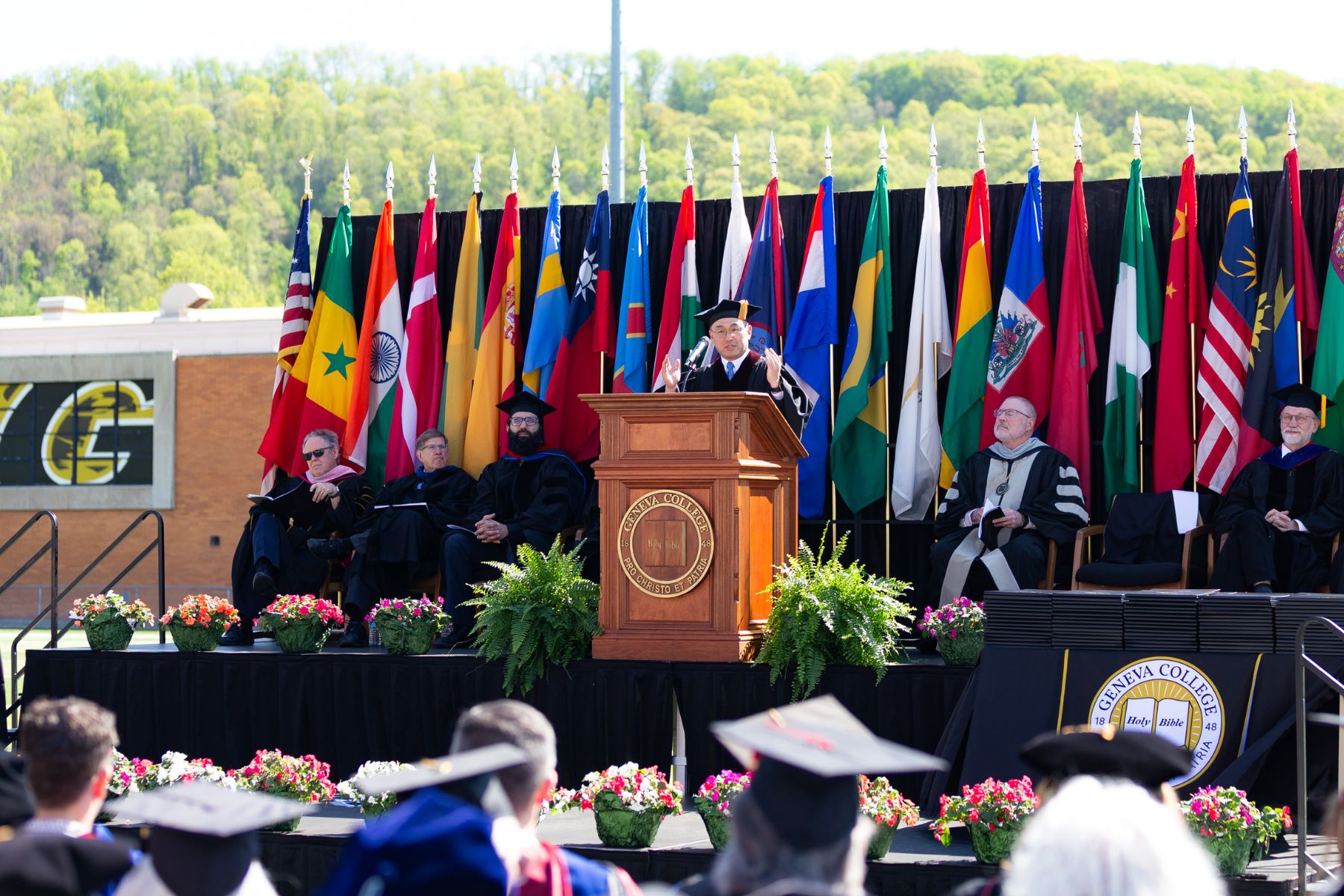
...I cannot help but remember that one of your values at Geneva College is simply “pursue godly wisdom.” Pursue godly wisdom. I know that you have learned much in the classrooms, but also just among the people who are here, interacting with one another. I want to spend just a brief moment of time together with you thinking about godly wisdom and what this pursuit looks like, and how this wisdom may apply to our lives as well.
I am told that everyone has a “master story.” Master story is an event or a happening in one’s life where what happened before changes dramatically after this event, and the priorities and the circumstances are reoriented because of said event.
If you were to ask my parents what their master story might be, my guess is they would say the Korean War. I’m thinking there may be some who are here who may know something about it and have served there as well, but in 1950-53, there was a major civil war on that peninsula. Many lives were displaced, and my guess is that my parents would simply say, the Korean War impacted them so much that everything changed after.
If you were to ask me, I would probably say my immigration history. Our family moved to the U.S. from South Korea in 1982 when I was 10. And if you're a math major, you know my age now as a result of it. But when you think about it, it was a dramatic change for the five kids — girl, boy, girl, boy, girl — [I’m the] firstborn son, second child, where we had to adjust to a new life, a new culture, as well as a new language.
If you were to ask my children, Anna and Simeon, who are 19 and 17, not unlike you all sitting right here, if you were to ask them what changed their lives as a master story, I would imagine there may be many other possibilities, but one particular event was COVID of 2020. In 2022, my son came up to me and said, Dad, happy anniversary. I said, “What anniversary is this?” March 13, he said, was the anniversary when he was asked to come into the major auditorium in his school when he was in sixth grade, and he was told that they were going to shut down for two weeks. But they shut down for the rest of the year in California. I said, “What else do you remember from that day?” He said it was a rainy day, and it was awful weather — it was a bad day. “Do you remember anything else from that day?” He said, it was Friday the 13th! So you can imagine — though as Christians we don’t believe those things — he remembered it quite well. Friday the 13th, it was a bad day. “Son, do you remember anything else about that day?” He said no. No, it was just a bad day. “Simeon, it’s also mom and dad’s anniversary,” we told him. It’s amazing what remains in their brains.
I remember that day well because that was the last time I was actually in Pittsburgh, here for a conference on the 12th and 13th, supposed to go on to Saturday, but they had to cancel it in the middle of the day. I flew out on the 13th, in the morning, got there and we had the executive team meet together for the seminary for a decision to shut down the school for two weeks minimally, and then met with the board online the next day in order for us to prepare for classes for the next few weeks.
You remember it well because you lived through it. We recognize that history often changes us. It teaches us, it provides us with wisdom that we need even if it’s a painful lesson or wisdom. But if years and decades can provide much wisdom for us, what would God do with centuries and millennia is the question we have for us this morning.
Because when you look at Psalm 136 — and I heard that this institution loves the psalms — here 136 simply says this. Verses 1-3 say,
As we reflect upon this theological history provided by the psalmist, here one conclusion is possible that I want to leave with you. Something for you to remember and carry, for this is what the Lord declares to us. Our God is good, and His steadfast love for you, for those of you who know Jesus Christ, endures forever.

For the psalmist sets out his main point in verse one. He simply says this, “Give thanks to the Lord, for He is good.” And the question you have to ask is, Why is He good? Well he tells us why God is good by reminding us of the history of humankind from the very beginning. This is no ordinary history, it’s selective. It’s theological history where he talks about creation — God made the heavens, the great lights, the sun and the moon and the stars. Then he tells us not only did He create all things, He redeemed us throughout history, recounting the salvation of the Lord given to the Israelites. In saving God’s people out of Exodus when he said, he struck down the firstborn of Egypt, brought Israel out, divided the Red Sea in two, made Israel pass through the midst of it, and overthrew Pharaoh and his hosts. And then [God] furthered His place among His people by going before them. We remember the great kings, the mighty kings, the king of the Amorites and the king of Bashan who were no match for the God of Gods and the Lord of Lords. And He took their lands and He gave them to His people. He did all this [not when] they were numerous or powerful or loveable; He did this when He remembered us in our lowest state, is the psalmist’s comment. Here we recognize why we are to say that our God is good because His steadfast love for His people endures forever.
Though I have a number of friends and colleagues who attended Geneva, I did not know that the institution is nearly 180 years old. Coming from California where history is understood in decades and merely years, I’m amazed by the Lord’s faithfulness upon this institution and pray for many years of fruitfulness as you serve the church so well.
But God’s goodness to us is not because things have always been easy. We just recounted some of the painful histories in our own personal lives, and we recognize that there is ongoing recovery, wars and rumors of war, societal unrest, as well as economic uncertainties that you all see in your newspapers on a daily basis.
But what is striking about the psalmist is that he understands exactly how you and I might feel. When we hear that God is good, Scripture doesn’t sugarcoat that to actually say that everything will be easy... You have to only look at Psalm 137. This is going to show you how good I am in math, it’s the one following the 136 that I read. There it recounts for us one of the saddest accounts of Israelite history where they’re captured and the enemies are mocking them, marching along the riverside. And they simply say, as the Israelites are crying, sing us a song of Zion. Sing us a song that makes you happy because it brings memories of your home. And do you know what God’s people said? How shall we sing the Lord’s song in a foreign land? How do we sing praises to God in a place where there is no happiness or the presence that we actually know? What’s amazing about Psalm 137 is that it’s immediately followed by 138. Do you know the message of 138? It simply says, “The Lord will fulfill His purpose for me; your steadfast love, O Lord, endures forever.” The same message that you find in 136, repeated again for us in 138. Almost as if to say, structurally, the love of the Lord envelops our pain and our sorrow. The steadfast love of the Lord covers all. God is good because His steadfast love endures and He is good to us and His love does not end.
We recognize this truth as something you’ve heard many times over in your churches and in your classrooms. It’s a reminder to us as we are launched into the world around us. It’s an unending story because in the 26 verses found in Psalm 136, that same phrase is repeated for us. How many times? 26 times. Every verse has the same refrain, an unending refrain of “His love for us endures forever.” His steadfast love endures forever, does not end, continues without quitting, is the message that Scripture seems to display to us. And you might have heard, in your language courses, the original language behind this word translated “steadfast love” is actually richer than it actually gives indication of. This explains the wide variety of translations we have. His steadfast love, His love, His loving-kindness, His faithful love, His mercy, and my favorite — His loyal love. His loyal love endures forever.
For those of you who are bilingual or perhaps trilingual, for those of you who have studied languages here which I’m sure are taught very well, you recognize how difficult translations are. Translations involve transferring the meaning, the implication, and the impact of a word or a sentence to an audience who’s unfamiliar with the history, context, or the culture of the original speaker or the author. Maybe I shouldn’t bring this up in front of our faculty here, but perhaps some of you enjoy Netflix. For those of you who don’t know what that is, it’s a streaming TV service. You get to see a lot of shows, but there are a lot of international shows now, foreign language shows, and one of the popular things has been K-dramas... Korean dramas as well as music where everything is subtitled. For those of you who enjoy shows with subtitles, you recognize many of these subtitles do not do justice to the meaning of the show. You may have noticed where you pause and you read the subtitle and you say to yourself, “I don’t get it.” That’s because there are many things when you translate into different languages, there is no exact word for the target language. For those of you who know Korean, there are no words in Korean unless borrowed that talk about humor, irony, or comedy. The word for comedy in Korea is comedy, so you can see how that is a borrowed language altogether. For a nation that’s always been captured by the bigger nations around, the nation that knows pain and history of being captured and being a prisoner, the nation that only experienced independence in 1945 in the VJ day of August 15, you come to realize comedy or humor may not be the most common thing that they would refer to.
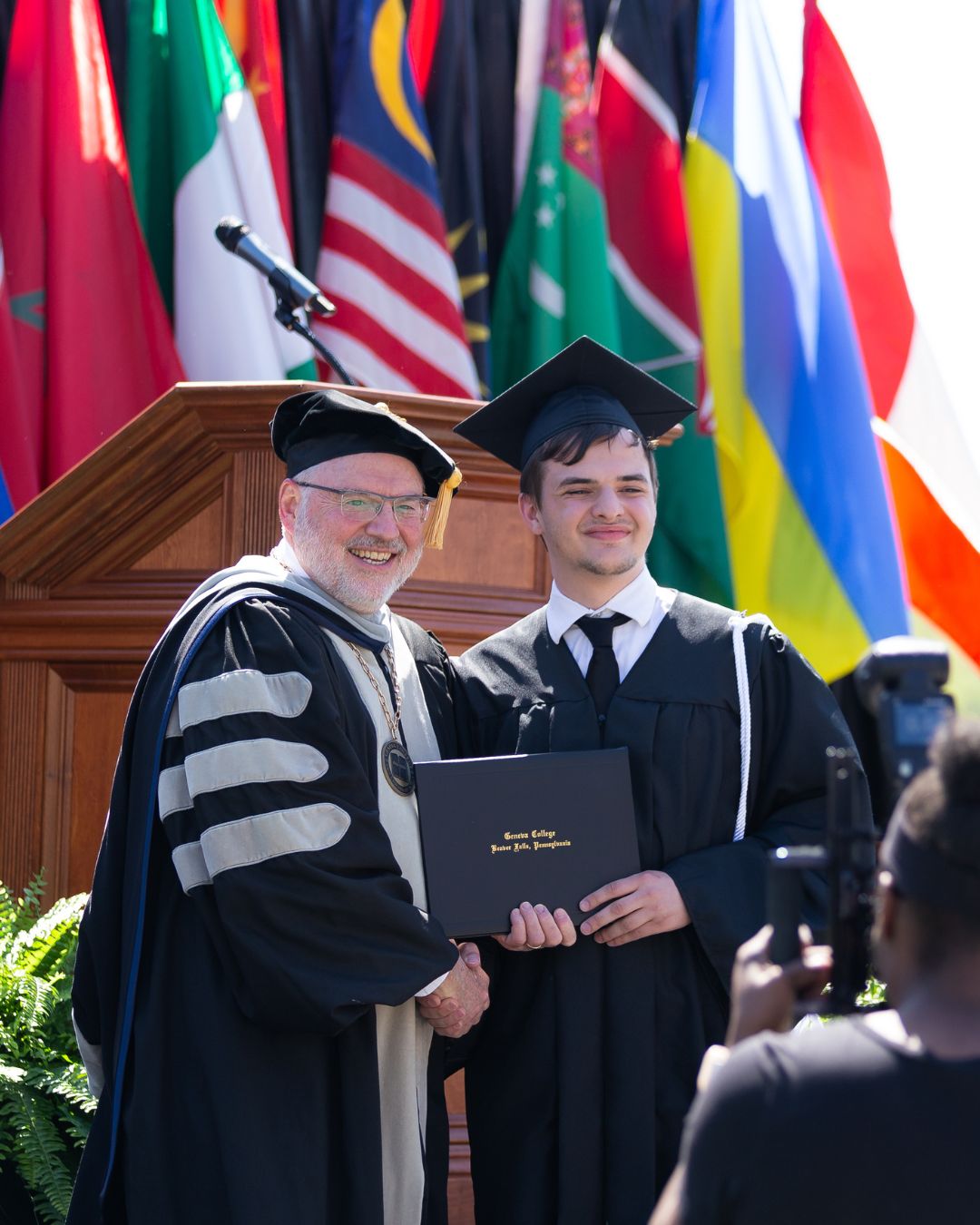
Language displays to us something deep that individual words cannot and, often times, translations are far beyond what individual language can handle. The word that is used for steadfast love in this refrain means covenant love, or the favor God chose to those with whom He has entered into a promise relationship. It is mercy bestowed upon people who deserve the opposite. Living in sin, rebellion, and hostility towards God. It is about grace poured out upon people who do not deserve the riches of His blessings, having lived for oneself and not worshiping the God of creation and redemption. It is love given to people who did not love and who even after receiving love do not love well, often professing one thing with their mouths but actions betraying their alleged convictions. These are all the things being conveyed here for you. His mercy, His grace, love unending are contained here.
It is this promissory love fulfilled in the Son Jesus Christ our Lord and through the Son’s name alone. Note with me not the mechanism of salvation but the motivation of salvation found in Ephesians 2 by Apostle Paul, “But God, being rich in mercy because of the great love with which He has loved us.” Here he goes on to say it’s so that in the coming ages, He might show the “immeasurable riches of His grace.” Do you know how complicated that is in the original? Because he’s piling words upon words to indicate how big God’s love for you is. The immeasurable riches of His grace and kindness towards us in Christ Jesus. “For by grace you have been saved through faith, and this is not your own doing; it’s the gift of God.”
This is what the Lord conveys to you in His steadfast love, displayed and demonstrated for us in His Son Christ Jesus. We, as a result, belong to Him. You belong to Him. The world might say otherwise: It’s the letters behind your name, it’s the zeroes in your account, it’s the zip code in which you live, or the power status you might obtain at one point in your life. But here your identity according to Scripture is not found in those elements; it’s found in the fact that you belong to Jesus Christ. And His steadfast love for you has been poured out.
I know I don’t look Dutch, but I grew up in a Dutch Reformed Church called the Christian Reformed Churches where my dad retired as a minister. And I was catechized by the catechism called the Heidelberg Catechism, where the first catechism asks, what is your chief comfort in life? And it simply says this: “I am not my own, but belong — body and soul, in life and in death — to my faithful Savior, Jesus Christ.” I am not my own. You are not your own. But if you confess Jesus as your Lord and Savior, you belong to Him. That is your first and primary identity as you go forth into the world. You are a signpost pointing to our Lord and Savior Jesus Christ who demonstrated for us not only His power, but His love for His people. This is who we are, and this is how we ought to live.
Knowing that God’s steadfast love never quits and ends, there is only one thing that should characterize you and me. A characteristic that doesn’t seem all that common anymore, as ordinary as it sounds. The verses that I read to you at the beginning simply repeat for us not only God’s steadfast love for us, it simply says this: “Give thanks to the Lord.” Give thanks to the Lord. Verse three: Give thanks to the Lord. Verse 26, the last verse: Give thanks to the Lord. Easier said than done, I know. Our hearts are prone to wander, and our eyes fixate on what is missing rather than what is present. But the psalmist simply says, give thanks – full stop. It doesn’t say give thanks when things are going really swimmingly for us. It doesn’t say give thanks when we are rich and abundant. It doesn’t say give thanks when we’re healthy and we can do all things we desire. No, he says give thanks. And it tells us exactly why. Give thanks in the Lord. For you see, friends, even non-Christians give thanks when they are healthy, loved, and successful. What makes those of us who belong to Christ Jesus different and unique in this world is that we have the accent of heaven, which is represented by thankfulness. Thankfulness daily not because things are well, not because things are going the way we want. Because simply, God’s promise is that He will be with you wherever you go. Listen to Him when He says He will go before you and be near you wherever you go. And because of His presence, on days of success, we give thanks because He has done it all. On days of darkness we give thanks not because things are easy — because His promise is to be there with you. In that place of moments of pain and tears. This is why in heaven, we’re told, “Our Father in heaven wipes away our tears.” That beautiful image of our Father. This is why the only qualifier is simply this: Give thanks in the Lord for His steadfast love for you endures forever.
I think the New Testament authors agree. Ephesians 5:20 says, “Give thanks always, and for everything to God the Father in the name of our Lord Jesus Christ.” 1 Thessalonians, a verse you know well: “Rejoice always, pray without ceasing, and give thanks in all circumstances; for this is the will of God in Christ Jesus for you.” Not wishful thinking, not positive thinking — giving thanks because you know this Christ Jesus whose steadfast love for you, friends, graduates. His steadfast love for you endures forever.
I began with the history, maybe I can end with history. This is what you can’t help yourself doing when you’re a history major. Here on your website, it states the College is named in honor of Geneva, Switzerland, which was the center of the 16th century reformed Christian faith movement. When this movement moved north and east, as many historians here understand well, it often produced catechisms to more simply teach others what the Scriptures taught us. This is why many of us stand upon the confessional teachings of the church. One such catechism, again, was the Heidelberg Catechism. You and I know that the world is catechizing you daily by inundating you with TV shows, social media, books, as well as news articles that tell you what you ought to think as priorities. Here the catechesis that we grow up with is what the Scripture teaches us.

And perhaps I can leave you with these words as you depart from Geneva as it carries on both the traditions and teachings simply as the Heidelberg Catechism asks in question and answer 26: “What do you believe when you say ‘I believe in God the Father Almighty, Creator of heaven and earth’?” And this is the answer it gives: That the eternal Father of our Lord Jesus Christ, who out of nothing created heaven and earth and everything in them” — again going back to human history — “who still upholds and rules them by His eternal counsel and providence is my God and Father for the sake of Christ Jesus, His Son. I trust God so much that I do not doubt He will provide whatever I need for body and soul and will turn to my good whatever adversity he sends upon me in the veil of tears.” And this question and answer ends simply by saying, “He is able to do this because He is Almighty God.” We don’t believe in just monotheism. We are megatheists for our God is big. He desires to do this because He’s a faithful Father. Let me repeat that last line to you: He is able to do this, friends, wherever you go, because He is the Almighty God. He desires to be with you and go before you because He is a faithful Father to you in Christ Jesus our Lord.
Friends, you are much smarter, much wiser, than when you began the institution four years ago thanks to many faculty members that are here, the prayers of many friends and family who are gathered around you. May the Lord bless you, that the Spirit will imprint this truth and wisdom in your hearts daily. You may pursue your Lord with faithfulness wherever you go, that you may remember that His steadfast love for you, demonstrated and displayed powerfully in His son Christ Jesus our Lord, never ends and never quits. Therefore may He move you, your mind and your hearts, that you may be marked among many believers and unbelievers alike — no matter what the circumstances of life may be, that your lips will sing praises and lift up thanksgiving to your Lord and Savior. Not because all things are well in the world, but simply because you trust in the One who holds all things in His hands.
May the Lord go before you and guide you, and again, congratulations Class of 2025.
Reverend Joel Kim, PhD
Geneva College Commencement Address | May 10, 2025
Listen to the address at www.youtube.com/watch?v=c0T0TKLIrPg
Opinions expressed in the Geneva Blog are those of its contributors and do not necessarily represent the opinions or official position of the College. The Geneva Blog is a place for faculty and contributing writers to express points of view, academic insights, and contribute to national conversations to spark thought, conversation, and the pursuit of truth, in line with our philosophy as a Christian, liberal arts institution.
Jun 3, 2025Biblical WisdomRelated Blog Posts
Request Information
Learn more about Geneva College.
Have questions? Call us at 724-847-6505.
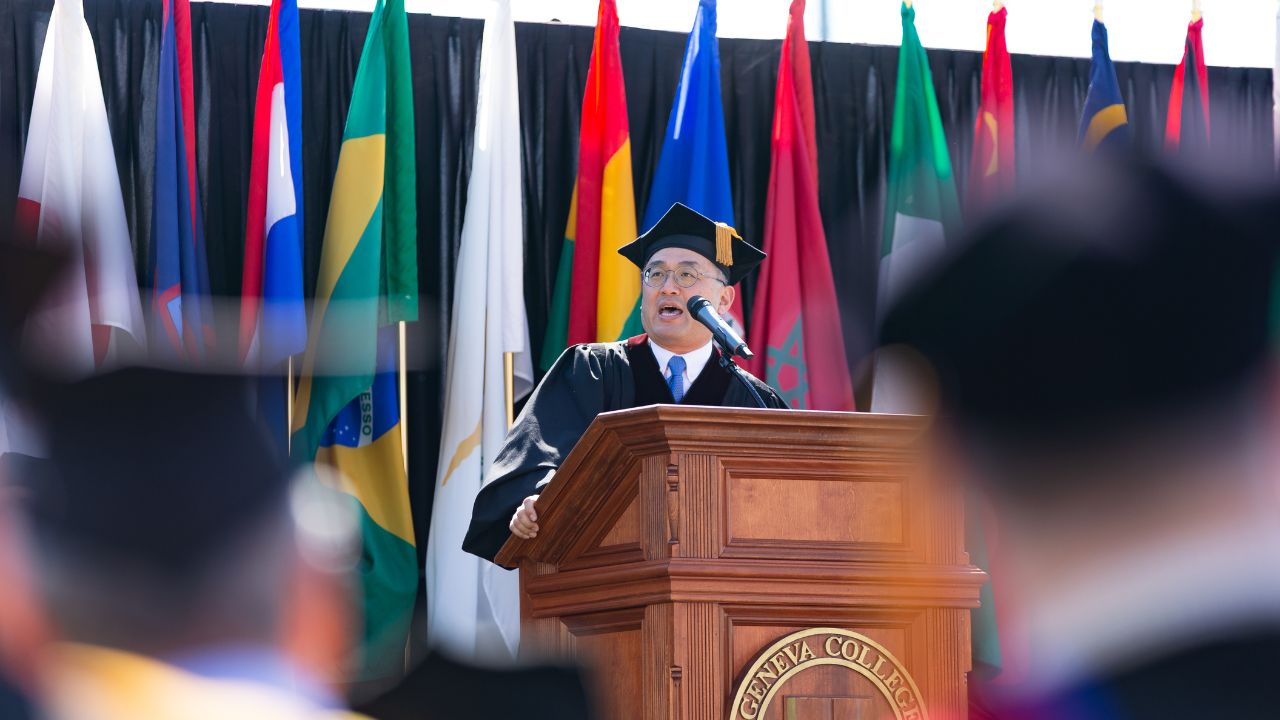






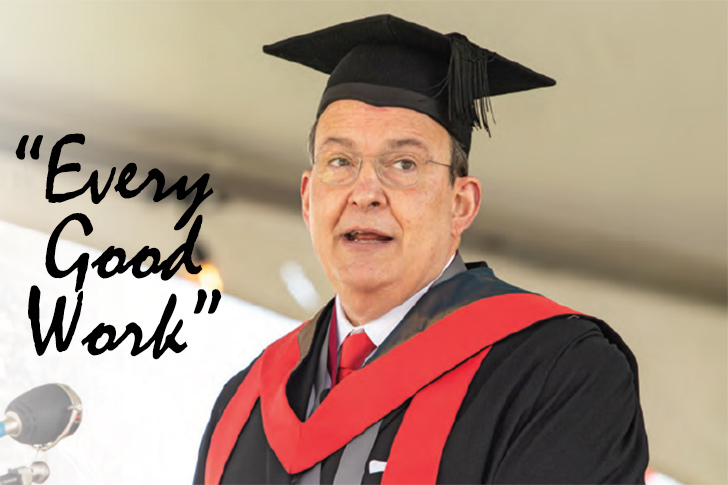
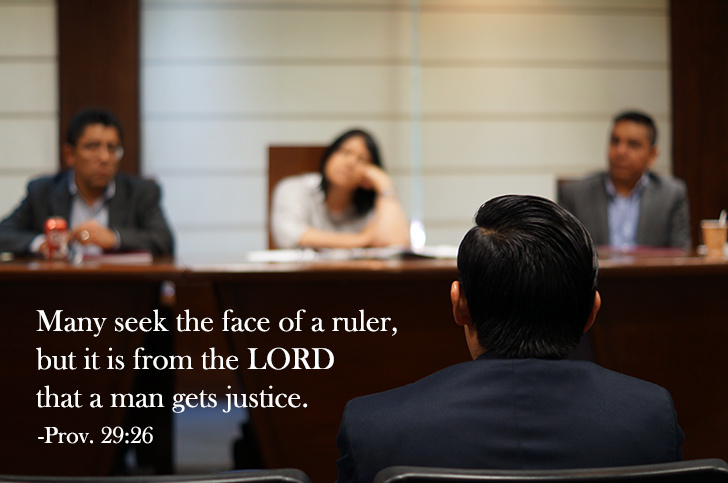
 Online Course Login
Online Course Login